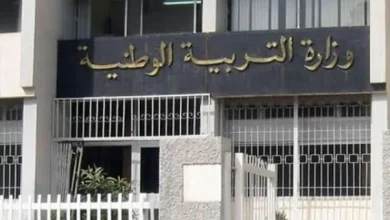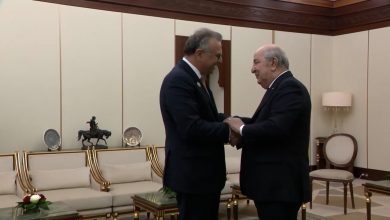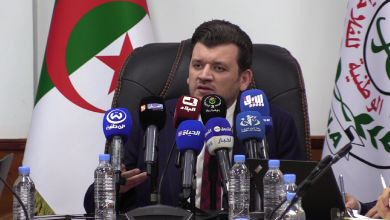The Rapid Support Forces (RSF) announcement of their seizure of the Sudanese Army’s 6th Infantry Division headquarters in El Fasher, North Darfur, has ignited a storm of reactions across Sudanese social media, fueling anxieties about the nation’s future and the trajectory of the ongoing conflict. This declaration followed hours of intense fighting, marking a potentially pivotal shift in the military control landscape of the Darfur region. The RSF asserts that this victory signifies the fall of the last major Sudanese Armed Forces (SAF) stronghold in the area.
The RSF had besieged El Fasher for approximately 18 months. Reuters news agency reported allegations that the RSF repeatedly targeted civilians with drone strikes and artillery fire, exacerbating food shortages and a dire humanitarian situation within the city.
Conversely, a military source within the SAF downplayed the significance of the withdrawal from certain positions in El Fasher, attributing it to tactical considerations and rejecting the characterization of the events as a defeat. Meanwhile, footage purportedly showing RSF troops arriving at the 6th Division headquarters circulated widely online.
Local media outlets reported that the capture of the 6th Division occurred just a day after the RSF announced its control over the town of Bara in North Kordofan, representing a rapid series of military gains for the paramilitary force. In a statement, the RSF declared that “liberating the 6th Division represents a crucial milestone in the course of battles waged by our valiant forces and charts the features of the new state in whose construction all Sudanese people participate.”
Adding to the humanitarian crisis, the Sudanese Doctors’ Committee reported the death of a nurse and injuries to three others, allegedly caused by RSF targeting of El Fasher Hospital. This incident constitutes another alleged violation in a series of abuses against civilians and healthcare facilities.
El Fasher holds strategic importance within the Darfur region, serving as the headquarters for the army’s military operations in the area and a crucial hub for international humanitarian organizations, according to Sudanese media reports.
Online, Sudanese citizens expressed a range of sentiments regarding the developments in El Fasher. One user, Talal, wrote, “El Fasher is fighting for all of Sudan… This is what the war has taught us… Heartbreaking news, then great joy follows successively.” Another user, Sarah, sarcastically commented on the SAF’s promises to liberate El Fasher, contrasting them with the reality on the ground: “The army that said it wanted to liberate El Fasher couldn’t even protect its positions! They withdrew from their sites one by one until they disappeared from the whole city, and the other side entered it.” Sami expressed his frustration despite anticipating the fall of El Fasher: “Although I was sure that El Fasher would fall because it is surrounded by large cities and villages, all of which are in the hands of the militia, and its liberation is almost impossible, I feel great frustration.” Norhan criticized the army in her tweet, describing the events as a humiliating withdrawal: “The liberation they are talking about turned out to be a humiliating withdrawal from El Fasher! The army failed to stand firm, failed to defend, failed in everything. When the army leaves the city and goes away, and the other side comes and imposes control, that means that the balance of power has completely shifted.”
For more information about Algeria, check our dedicated section.
Reuters, in its analysis of the situation, suggested that the events in El Fasher could accelerate the geographical division of the country by enabling the RSF to consolidate its control over the vast Darfur region. The agency added that the RSF had designated Darfur as the base for a parallel government it had previously formed, raising concerns about the fragmentation of Sudan into separate entities and deepening the political and humanitarian crisis in the country.
The fall of El Fasher, if confirmed, would represent a significant strategic victory for the RSF, potentially allowing them to consolidate their power in Darfur and further challenge the authority of the Sudanese government led by General Abdel Fattah al-Burhan. The implications for the broader conflict are substantial, potentially leading to further escalation and displacement.
The fighting in El Fasher has already had a devastating impact on the civilian population. Reports of widespread human rights abuses, including killings, sexual violence, and looting, have emerged. The closure of the airport has hampered humanitarian efforts, making it difficult to deliver aid to those in need. The situation is further complicated by the presence of numerous armed groups in the region, some of whom have aligned themselves with either the SAF or the RSF, while others are pursuing their own agendas.
The international community has expressed deep concern about the escalating violence in El Fasher and the potential for further atrocities. The United Nations has called for an immediate cessation of hostilities and urged all parties to respect international humanitarian law. However, diplomatic efforts to resolve the conflict have so far failed to yield any significant results. The situation in Sudan remains extremely volatile, and the future of the country hangs in the balance. The control of El Fasher by the RSF adds another layer of complexity to an already dire situation, raising serious questions about the prospects for peace and stability in the region.
Analysts suggest that the RSF’s gains in Darfur, including the capture of El Fasher, could embolden them to pursue further territorial expansion. This could lead to a protracted and bloody conflict, with devastating consequences for the Sudanese people. The humanitarian crisis is already severe, with millions of people displaced and facing acute food insecurity. A further escalation of the fighting could overwhelm the capacity of humanitarian organizations to respond, leading to widespread famine and death.
The international community faces a difficult challenge in Sudan. While there is a clear need for a robust and coordinated response, there is also a lack of consensus on how to achieve this. Some countries advocate for sanctions and other punitive measures against the warring parties, while others favor a more diplomatic approach. The divisions within the international community have hampered efforts to resolve the conflict and prevent further bloodshed. Ultimately, the future of Sudan will depend on the willingness of the Sudanese people to find a peaceful solution to their differences. However, with the country teetering on the brink of collapse, the prospects for a peaceful resolution appear increasingly bleak.



